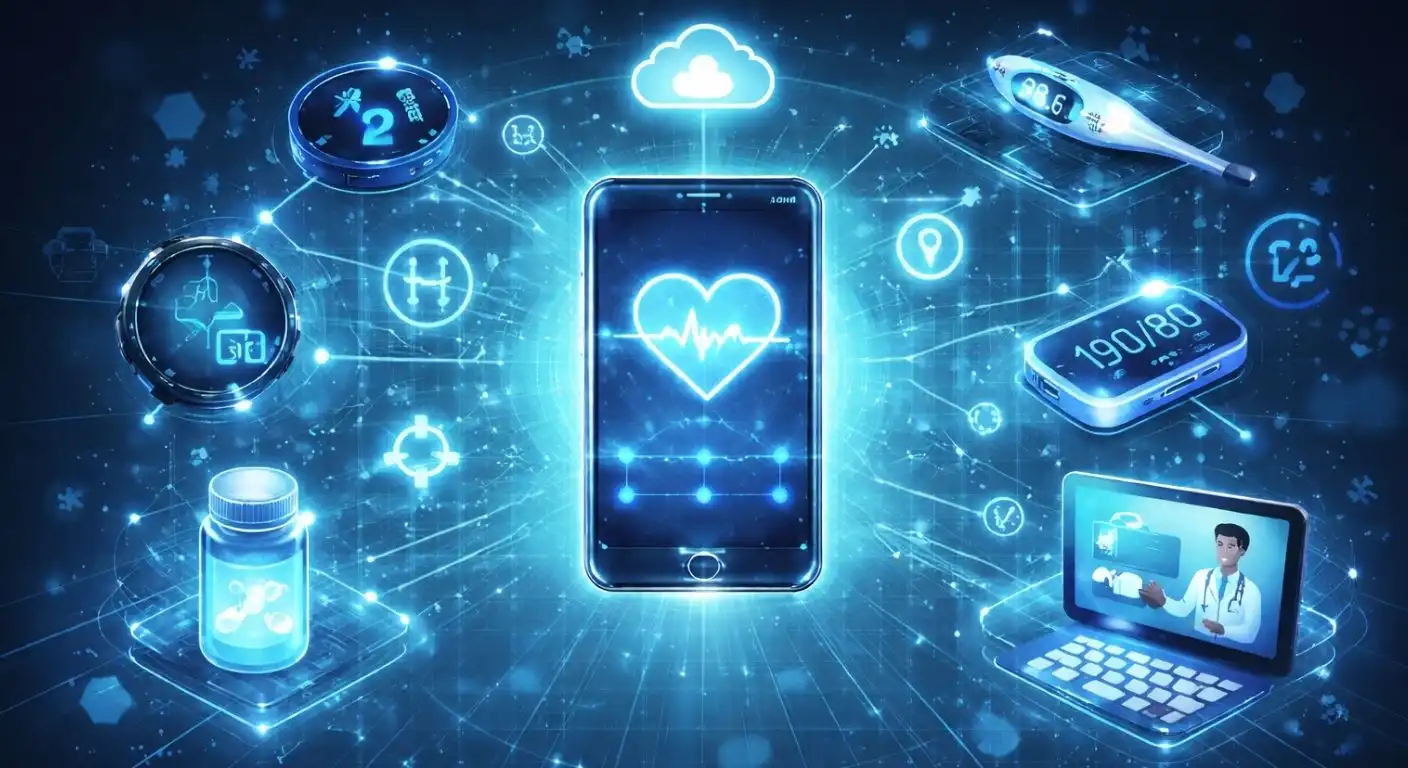In the era of technological advancement, a revolutionary trend is shaping the healthcare industry—digital healthcare. This transformative approach leverages digital technologies to enhance medical services, diagnosis, and patient care. This article delves into digital healthcare, exploring its potential, challenges, and the profound impact it holds for medical professionals and patients.
The Digital Health Revolution
Digital healthcare is a catalyst for redefining how medical services are delivered, creating a symbiotic relationship between technology and patient care.
Telemedicine: Redefining Remote Consultations
At its core, Telemedicine is revolutionizing patient-doctor interactions through telemedicine. Virtual consultations enable patients to connect with healthcare providers remotely, enhancing access to medical expertise and reducing the need for in-person visits, especially in remote or underserved areas.
Wearable Health Tech: Empowering Self-Care
Wearable devices like fitness trackers and smartwatches are a hallmark of digital healthcare. These devices monitor vital signs, track activity levels, and even provide real-time health insights, empowering individuals to take proactive steps toward better health and well-being.
The Impact of Digital Healthcare
The influence of digital healthcare extends beyond individual health monitoring, permeating the entire healthcare ecosystem to improve medical practices, research, and outcomes.
Electronic Health Records (EHRs)
It has ushered in electronic health records, transforming how patient information is stored, accessed, and shared securely among medical professionals. EHRs enhance care coordination, reduce administrative burdens, and contribute to more informed medical decisions.
Precision Medicine: Tailoring Treatment
Digital healthcare facilitates precision medicine—a paradigm that customizes treatment plans based on an individual’s genetic makeup, lifestyle, and medical history. This approach maximizes treatment efficacy and minimizes adverse effects by targeting therapies for each patient’s needs.
Challenges and Innovations
While digital healthcare holds immense promise, it faces challenges that stimulate innovation, ethical considerations, and a need for regulatory frameworks.
Data Security and Privacy
Ensuring the security and safety of patient data is paramount. Robust cybersecurity measures, compliance with data protection regulations, and informed consent protocols are essential to protect sensitive medical information in the digital realm.
Interoperability: Enhancing Data Exchange
Interoperability challenges hamper digital healthcare’s potential, ensuring that different health systems and devices communicate seamlessly. Standardized data formats and interoperability protocols are essential for efficient data exchange, allowing medical professionals to make well-informed decisions based on comprehensive patient information.
The Future of Digital Healthcare
The trajectory of digital healthcare leads to trends that promise to reshape medical practices, research, and patient engagement, revolutionizing healthcare delivery.
Artificial Intelligence (AI) in Diagnostics
AI-powered diagnostics are transforming medical imaging and diagnostics. Machine learning algorithms analyze medical images to detect anomalies, aiding medical professionals in early disease detection, improving diagnostic accuracy, and expediting treatment decisions.
Telehealth Beyond Consultations
Telehealth extends beyond virtual consultations to remote patient monitoring. Wearable devices and sensors allow medical professionals to track patients’ vital signs and health metrics in real-time, providing proactive care and interventions, particularly for chronic conditions.
Conclusion
Digital healthcare is not just a trend; it’s a seismic shift that elevates medical practices and patient experiences. By integrating technology into healthcare, we embark on a journey that enhances diagnostics, patient engagement, and precision treatment. While challenges involving data security and interoperability persist, the path forward is illuminated by innovation and ethical considerations.
The future of digital healthcare holds the key to personalized treatments, remote patient monitoring, and transformative medical breakthroughs. The odyssey of digital healthcare is a voyage into a realm where bytes and biology intersect—a journey that beckons us to embrace an era where technology heals and empowers us to redefine the boundaries of medical possibility.





